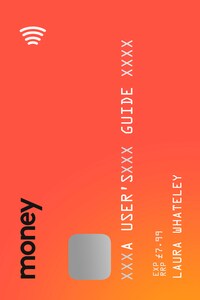This is a little guide that I could have really done with ten years ago, when I was twenty-three, and fresh off a First Great Western into London, one of the world’s most expensive cities, ready to start my first full-time job as the global economy crashed. Here I address the things I wish I had known about money earlier (the younger you start saving the more time your money has to grow) but was too embarrassed to ask. I assumed everybody else already had it nailed. Turns out that most did not, and still don’t, whatever their seeming competency at being an adult.
My aim is to make sense to those of you who write yourselves off as bad with money, the way I once did and often still do, as you stare down the barrel of your overdraft. It does not have to always be this way. Anyway, what does being bad with money even mean? Failing to check your bank balance regularly and not putting enough in a pension? Or putting so much in your pension that you haven’t had a holiday since 2005? Who is to judge?
Here is a secret: everyone is ‘bad’ with their money sometimes, some people are just better at styling it out and not letting on, some are rich enough that they can keep it well hidden. We are psychologically programmed to make poor financial decisions. There’s a whole Nobel-prize-winning area of academia, known as behavioural economics, to describe how. And because no one likes talking about money, and no two people agree on what it is for, whether it is better to spend it or to save it (clue, there is no right answer), the myth that others know what they are doing is rarely exposed.
•
So read on if you have ever wanted to know, what actually is an ISA? What tax do I pay and why? How much should I be saving towards retirement? Should I be investing any money, and if so, how? Should I pay off my student loan? How do mortgages work? What are the best budgeting apps? How do I split money with my other half fairly, and can I ever afford to buy a home, bring up a child, or be the kind of person at ease in small-plate restaurants? What stupid mistakes am I making with my money, and how can I stop it making me feel so crap about myself?
Get through this in an afternoon, and you should know a lot more than you did this morning. I can guarantee that if you follow at least a couple of tips in this book you will have already reimbursed the cover price.
But first, a bit about me, us feckless ‘millennials’, and where we are at.
Please note that I use the term ‘millennial’ reluctantly. It is a word that has come to make me itchy, a crude catch-all for the 14 million or so very different people born between the early 1980s and the year 2000, some of whom are now parents of teenagers, your boss, your lawyer, your surgeon, or your favourite novelist.
In September 2008 I went for an interview for a role as editorial assistant on the Money section at The Times, the optimistic move of a young graduate not yet grown into the full self-doubt phase. The night before, I’d been up late Wikipeding ‘what is a mortgage?’
The timing of this interview, the beginning of my career so far, was significant, though I didn’t see how at the time. Two weeks earlier the world’s fourth-largest investment bank, Lehman Brothers, had collapsed. The headline on the front page of








